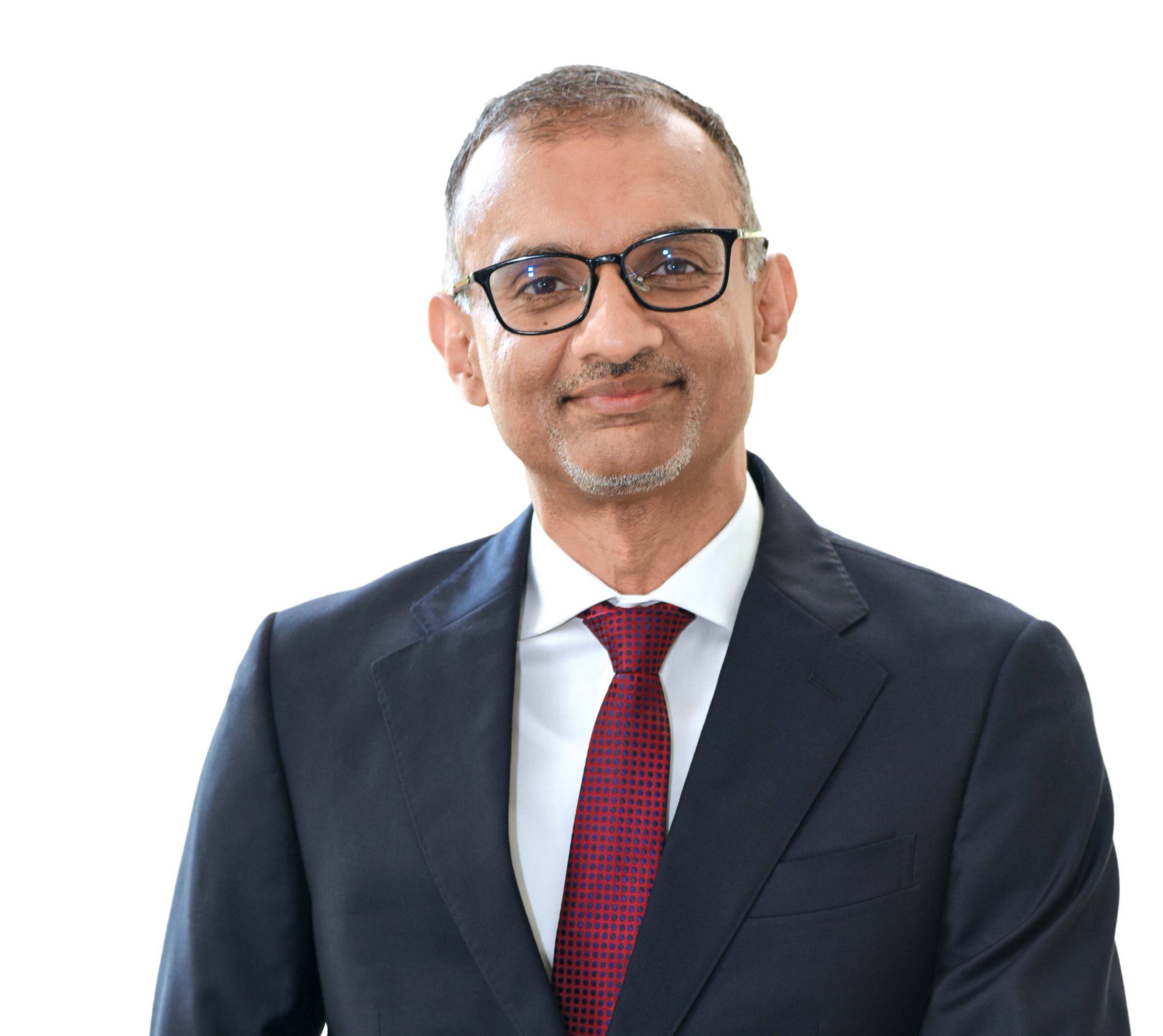
Inclusive Growth : Businesses should promote inclusive growth and equitable development

Message from Our Leadership
"We cannot have a flourishing business in a world where our consumers are struggling with climate change and social inequality. Sustainability and inclusiveness have always been core to our business strategy and operations."
Deepak Subramanian
Executive Director - Home Care
PRINCIPLE 8 Highlights

0
CSR spent in Aspirational Districts

0
%
CSR beneficiaries from vulnerable/marginalized groups

0
%
Of input material sourced within the district and neighbouring district

0
%
Of input material sourced MSMEs / small producers

0
trillion litres
Cumulative & collective water potential created

0
lakh+
Shakti Entrepreneurs

0
Suvidha Centres

~0
million
Beneficiaries in prabhat
Essential Indicators
1. Details of Social Impact Assessment(s) of projects undertaken by the entity based on applicable laws, in the current financial year.
During FY 2022-23, we have not undertaken any projects that require Social Impact Assessments (SIA).
| S. No | Name and brief details of project | SIA Notification No. | Date of notification | Whether conducted by independent external agency (yes/no) | Results communicated in public domain (yes/no) | Relevant Web link |
|---|---|---|---|---|---|---|
| 1 | Not Applicable | |||||
2. Provide information on project(s) for which ongoing Rehabilitation and Resettlement( R&R ) is being undertaken by your entity, in the following format:
During FY 2022-23, we have not undertaken any projects that require Rehabilitation and Resettlement (R&R).
| S. No | Name of Project for which R&R is ongoing | State | District | No. of Project Affected Families (PAFs) | % of PAFs covered by R&R | Amounts paid to PAFs in the FY (In INR) |
|---|---|---|---|---|---|---|
| 1 | Not Applicable | |||||
3. Describe the mechanisms to receive and redress grievances of the community.
We are committed to developing communities around our sites and redressing their grievances and concerns. Our people regularly engage with communities living around the sites to understand their concerns, and in case of a specific grievance, it is duly recorded, investigated, and acted upon. We also have an online hotline (Convercent portal -https://app.convercent.com/en-us/LandingPage/99b958aa-55a1-e611-80d3-000d3ab1117eIg), where anyone can file concerns related to us, which are closely monitored by our Business Integrity team.
4. Percentage of input material (inputs to total inputs by value) sourced from suppliers:
| Category | FY 2022-23 | FY 2021-22 |
|---|---|---|
| Directly sourced from MSMEs/ small producers | 16.8% | 11.8% |
| Sourced directly from within the district and neighbouring districts | 44.2% | 47.8% |
Leadership Indicators
1. Provide details of actions taken to mitigate any negative social impacts identified in the Social Impact Assessments (Reference: Question 1 of Essential Indicators above):
It is not applicable as there was no Social Impact Assessment required to be conducted during FY 2022-23.
| S. No | Details of negative social impact identified | Corrective action taken |
|---|---|---|
| 1 | Not Applicable | |
2. Provide the following information on CSR projects undertaken by your entity in designated aspirational districts as identified by government bodies:
| S. No | State | Aspirational District | Amount spent (In ₹) |
|---|---|---|---|
| 1 | Multiple (14 States) | Multiple* | 11,77,13,002 |
| 2 | Uttar Pradesh | Balrampur | 4,06,74,957 |
| 3 | Maharashtra | Osmanabad | 4,01,45,394 |
| 4 | Uttar Pradesh | Chitrakoot | 1,15,06,062 |
| 5 | Uttarakhand | Haridwar | 98,94,688 |
| 6 | Punjab | Moga | 42,96,540 |
| 7 | Madhya Pradesh | Chhatarpur | 36,39,168 |
| Total | 22,78,69,811 |
*77 out of 112 aspirational districts notified by NITI Aayog.
3.a. Do you have a preferential procurement policy where you give preference to purchase from suppliers comprising marginalized/vulnerable groups (yes/no)?
Yes, we are committed to increasing spends with diverse suppliers with an aim to create opportunities for all by breaking down socio-cultural, systemic, and economic barriers. By including groups previously under-represented in our supply chain, we look forward to jointly scaling up and accelerating businesses, unlocking innovation, agility, resilience, and opportunities. Under 'HUL Compass ESG Goals', we are working to spend at least ₹2,000 crores annually with diverse businesses by 2025. The HUL Compass ESG Goals form a part of the Integrated Annual Report at pages 10 and 11.
3.b. From which marginalized/vulnerable groups do you procure?
We define a diverse business as one which is at least 51% owned and operated by members of under-represented groups. We continue our endeavour to increase spending with suppliers who embrace diversity, equity and inclusion matching to our ethos. As per the global Unilever framework , the focus groups will be (but not limited to) women, differently-abled people, economically marginalised communities, and backward sections of the society.
3.c. What percentage of total procurement (by value) does it constitute?
We are in the process of setting up a mechanism to quantify procurement from such diverse suppliers.
4. Details of the benefits derived and shared from the intellectual properties owned or acquired by your entity (in the current Financial Year), based on traditional knowledge:
Not Applicable.
5. Details of corrective actions taken or underway, based on any adverse order in intellectual property related disputes wherein usage of traditional knowledge is involved
Not applicable, as there are no adverse orders in intellectual property related disputes wherein the usage of traditional knowledge was involved.
6. Details of beneficiaries of CSR Projects
We are committed to
operating and growing our business in a socially responsible way. Our purpose is
to make sustainable living commonplace.
Our Corporate Social
Responsibility (CSR) Policy that is approved by the Board of Directors (Board),
outlines a clear agenda through which we will continue to contribute to the
community at large. We have been actively engaged in various CSR projects
involving, inter-alia, water conservation, nutrition, skill development, health,
cleanliness, waste management and environmental sustainability. For further
details on CSR initiatives, please refer pages 98 to 102 of the Integrated
Annual Report.
| S. No | CSR Project | No. of persons benefitted from CSR Projects | % of beneficiaries from vulnerable and marginalized groups |
|---|---|---|---|
| 1 | Plastic Waste Management | 1,19,51,857 | 77.0% |
| 2 | Swachh Aadat Swachh Bharat (SASB) | 12,63,016 | 100.0% |
| 3 | Prabhat | 11,48,876 | 91.0% |
| 4 | Promoting Nutrition & Hygiene | 2,28,497 | 98.9% |
| 5 | Project Shakti | 1,90,000 | 100.0% |
| 6 | Water Conservation - HUF | 1,78,945 | 84.5% |
| 7 | Future of Work | 20,988 | 56.1% |
| 8 | Health & Wellbeing | 9,250 | 3.8% |
| 9 | Empowering Women in the Field of Sports | 1,200 | 100.0% |
In addition to the above, we also run several behavioural change programmes (for eg. 'bin boy' campaign) across all media channels which has a widespread reach.